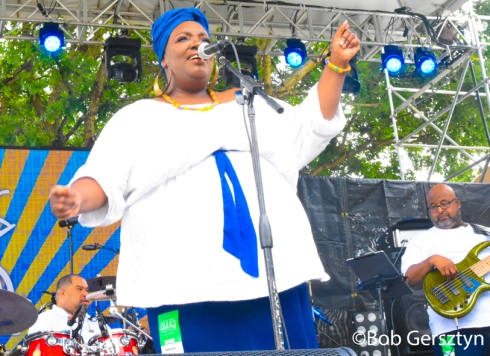
http://www.amazon.com/Nothing-but-Love-Gods-Water/dp/0271050845/
I was preparing my blog entry for Robert Darden’s latest book, “Nothing But Love In God’s Water: Black Sacred Music From The Civil War To The Civil Rights Movement,” when insanity burst into reality here in America again. A 21 year old mentally deranged, hate filled, white man attended a Bible study at historic Emanuel African Methodist Episcopal Church, in Charleston, South Carolina, where he shot and killed nine Black parishioners, including their pastor. The evil that perpetrated the tragic murders was of the same ilk that produced the pain and sorrow that resulted in the pre-civil war spirituals that Darden’s book is about.
Robert Darden’s book, “Nothing But Love In God’s Water,” is a historical document that is a fascinating read for anyone interested in the roots of American Black gospel, blues and jazz. The book’s subtitle is “Black Sacred Music from the Civil War to the Civil Rights Movement,” but the creation of that music pre-dates the civil war. The period of time from the arrival of the first African slaves to North America until the end of the American Civil War was the incubation period that produced the genesis and evolution of what came to be known as “the spirituals.”
“The old songs are our collective consciousness, perhaps even in our genes. They are our spiritual chromosomes. They make us who we are as a people.” — Gloria Scott
Originally the spirituals were protest songs that brought hope to the slaves as they suffered the forced servitude of their daily lives. . Songs like “Go Down Moses,” “Swing Low Sweet Chariot,” “Steal Away,” “Wade In the Water” and “John Brown’s Body,” which became “The Battle Hymn of the Republic,” sang of escape and freedom and used biblical imagery to rail against the injustice of their position. The songs were coded messages that transported information from one plantation to another in plain sight. The melody of the songs remained consistent, but the lyrics changed according to the message that they were bringing.
The period of time between the “Emancipation Proclamation” and the birth of the “Modern Civil Rights Movement” became the crucible where the “Spirituals” were transformed into gospel, blues and jazz entered the mainstream. White society in general began to attend concerts performed by Colored Jubilee groups that sang spirituals after the Civil War, which led to the creation of Minstrel shows as the dominant form of entertainment during the last half of the 19th century. Darden then explains the way that minstrelsy then evolved into vaudeville.
Darden demonstrates how the jubilee groups and minstrel shows featured genuine and watered down spirituals, first sung by mixed sex jubilee groups, but later evolving into all male barbershop quartets. Darden explains that until the turn of the 20th century barbering was a black trade, so all quartets were Negro. He presents the birth of the street minstrel’s, like Blind Willie Johnson and Blind Willie McTell who were recorded and bridged the gap between the spirituals and the blues. The “Great Migration” North, follows, as major cities like Chicago, Detroit and Harlem NY, become destinations for a better standard of living, creating a renaissance of Negro music, film and literature.
It wasn’t until after the 1st World War, that the Labor Unions began to accept Black workers for menial jobs, while at the same time annexing their music including the spirituals for inspiration.
“A singing army is a winning army, and a singing labor movement cannot be defeated.” — John L. Lewis
Darden points out that it was the labor unions embracing the black workers and their music that led to the further development and acceptance of Negro music. That same music eventually became the inspiration that led to the formation of the civil rights movement in the 1950s. The worker’s rights movement as advocated by the IWW or Wobblies, from the beginning of the 20th century used music to carry its message. It was during this phase that Negro songs of protest were brought to the ears of White society in general.
It was the intertwining of unions songs of Joe Hill and Ella May with Negro Spirituals that gave birth to modern day folk music. Poet Carl Sandburg considered the spirituals poetic and included some in his books, which helped transform them further into the voice of the masses. “Nothing But Love In God’s Water” is a fascinating book that will expand the reader’s knowledge and understanding of the way that Black sacred music developed into one of the most influential music forms in the world, by transforming an entire nation through Biblical imagery.

